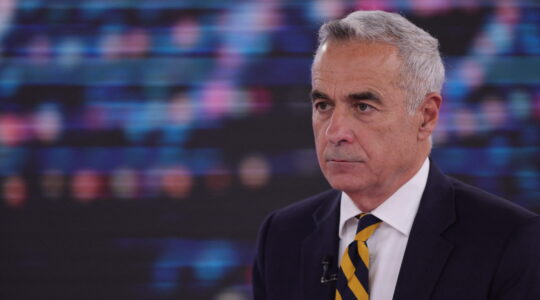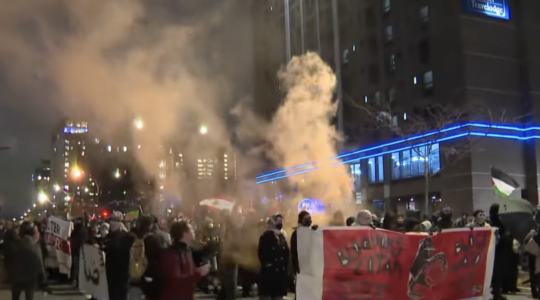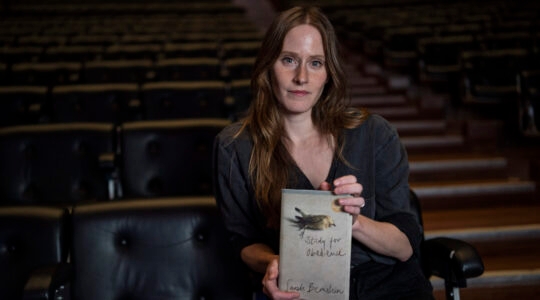(JTA) — A Berlin district court ruled that is permissible to call right-wing German politician Wolfgang Gedeon a Holocaust denier, saying it was a matter of opinion that is protected by the constitution.
Gedeon, who represents the right-populist party Alternative for Germany in the state parliament of Baden-Württemberg, had filed an injunction last spring to prevent Josef Schuster, head of Germany’s Jewish umbrella organization, from referring to him as a Holocaust denier.
Schuster had done so publicly in early 2016, noting in various German media that Gedeon had “trivialized and relativized the dimensions, historical significance and classification of the Holocaust.”
Holocaust denial, trivialization and relativization are illegal in Germany.
Gedeon’s attempt to stifle Schuster was rejected on Tuesday in a Berlin courtroom, the German Jewish weekly Juedische Allgemeine reported. Gedeon can appeal the decision
In a statement, Schuster applauded the court for taking a stand at a time when “aggressive anti-Semitism in Germany is gaining an ever-stronger foothold.”
“Verbal hostilities on the Internet, the denial or relativization of the Shoah and physical attacks on Jews are no longer an exception,” Schuster said.
The Allgemeine reported that Gedeon’s attorney said his client wanted to prevent the stigmatization of his political party, which entered the German parliament in September for the first time, riding a wave of resentment against refugees in Germany.
Furthermore, the attorney said Gedeon could not be compared to notorious Holocaust deniers like self-styled historian David Irving in England or the German author Ursula Haverbeck, who recently was sentenced to six months in jail for her Holocaust-related statements.
In the courtroom, Schuster’s attorney, Oliver Stegmann, cited a text that Gedeon had published under the pseudonym W.G. Meister, in which he said that he could “imagine an eventual modification of certain aspects of the Holocaust, particularly when it comes to the numbers [of those murdered], but in no way a revision of the entire matter.”

Help ensure Jewish news remains accessible to all. Your donation to the Jewish Telegraphic Agency powers the trusted journalism that has connected Jewish communities worldwide for more than 100 years. With your help, JTA can continue to deliver vital news and insights. Donate today.






